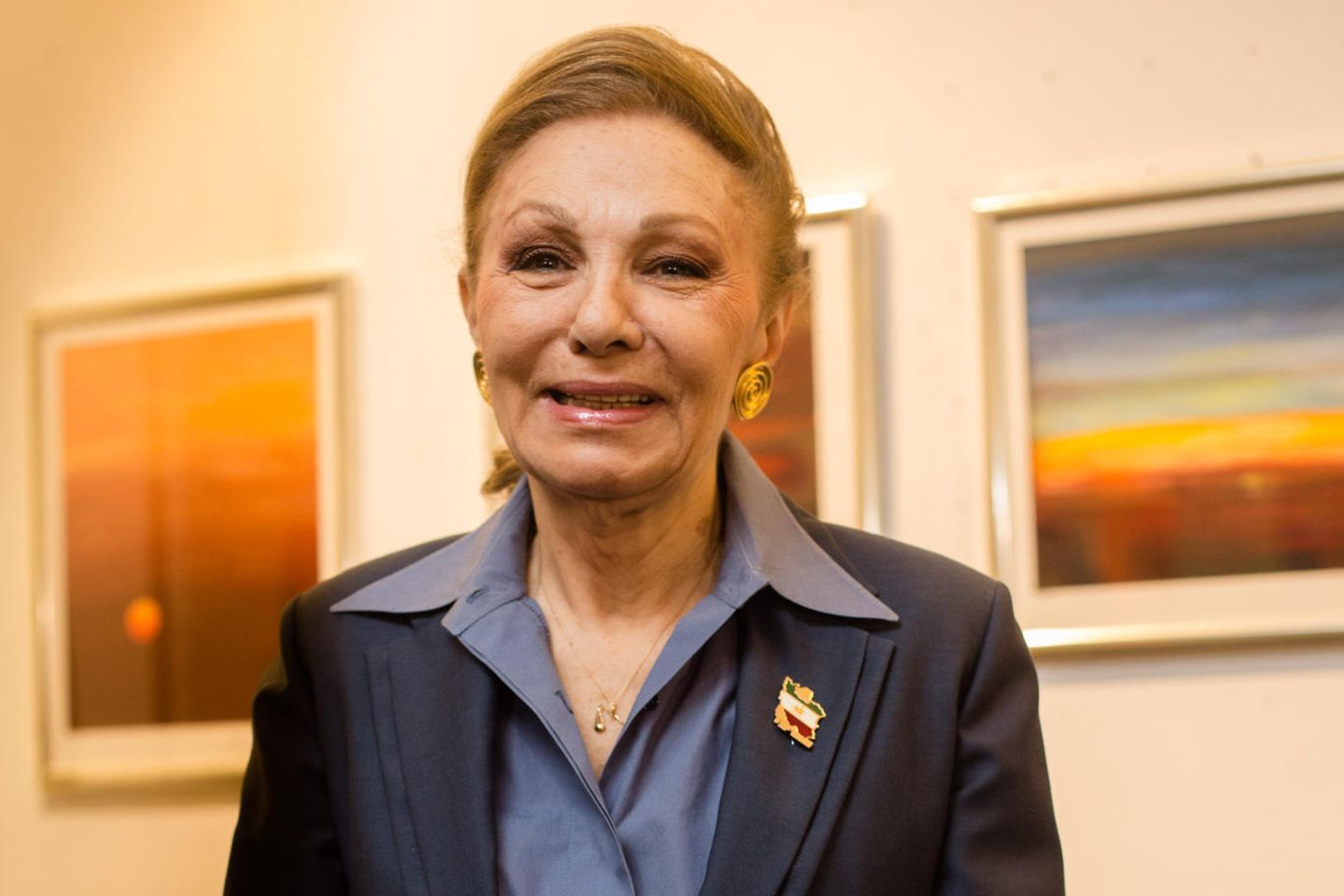Farah Diba Pahlavi
For your 85th birthday: A life full of splendor and sadness
Farah Diba Pahlavi
© Christian Marquardt/Getty Images
Style icon, empress, exile: Farah Diba Pahlavi looks back on an exciting life. Today she turns 85 years old.
As Empress of Iran, Farah Pahlavi, 85, had a life like something out of the Arabian Nights. She is considered the most photographed woman of her time and was one of the style icons of the 1960s and 1970s. But the fairy tale ended abruptly: she lost the crown and her home, then her husband and finally two of her children. The former empress will celebrate her 85th birthday on October 14, 2023. A look back at a life between splendor and sadness.
Farah Pahlavi was born Farah Diba in 1938 in Tehran, where she first attended an Italian and later a French school. In 1957 she moved to Paris to study architecture. There, as a young student, she met Shah Mohammad Reza Pahlavi (1919-1980). The love story of the two reads like a modern fairy tale: the couple married in 1959, and Farah Diba became the Shah’s third wife. Just ten months after the wedding she gave birth to heir to the throne Cyrus Reza, 62. Between 1963 and 1970 three more children were born: Farahnaz, 60, Ali Reza (1966-2011) and Leila (1970-2001).
Farah Biba Pahlavi was the “Jackie Kennedy of the Middle East”
As the Shah’s wife, her great interest was in art and culture. She was a patron of various organizations in the areas of education, health, sport and culture. She did not want to be reduced to the ornamental role of wife and mother. In the 1960s and 1970s, she traveled around Iran supporting her husband’s social and economic reforms and promoting the rights of women and children.
Farah Pahlavi was considered a real figurehead of Iran: the young queen attended state visits alongside her husband and became a style icon. If she restyled her hair, it was worthy of a front page. Many people called her the “Jackie Kennedy of the Middle East” during this time. In 1967 she was crowned Empress, Shahbanu.
From empress to widow without a home
Courted by heads of state abroad, protests against the emperor and his family arose in his own country from the late 1960s onwards. In 1979 the protest had reached revolutionary proportions and Reza Pahlavi had only one way out: he and his family had to leave the country. The Shah and his entourage wandered around the world for months in search of asylum.
Reza Pahlavi celebrated his 60th birthday in October 1979 in New York before the family traveled to Egypt in 1980. He died there in July of the same year as a result of cancer – making Farah Pahlavi a widow at the age of 41. Within a year she had lost the crown, her home and her husband. Farah Pahlavi now began a life in exile.
Although without the advantages of a large court and luxurious palace, the exiles were by no means impoverished. After two years in Egypt, they were able to settle relatively comfortably in the USA and later in France. However, the former empress withdrew from the public eye for many years and avoided major appearances.
Mourning for their children
Farah Pahlavi landed back in the headlines mainly because of two other family tragedies. In 2001, her youngest daughter Leila died of a pill overdose in London. Ten years later, son Ali Reza committed suicide in Boston.
What gave the former style icon support to this day was primarily her enduring love of art. To process her grief, Farah Pahlavi began painting. The proceeds from the sale of her pictures go to the Ali Reza Pahlavi Foundation, which she founded. Today Farah Pahlavi lives mainly in Paris.
Farah Pahlavi hopes to return to Iran
Meanwhile, in their former homeland, the people continue to fight for freedom and justice under the rule of the mullahs. They were the ones who drove the former empress and her family out of the country in 1979. In an interview with ZDF in December 2022, Pahlavi said: “They rape young girls, shoot children. It’s so terrible. But I don’t lose hope, because a revolution is just starting there.”
She is grateful to be able to experience developments in Iran and hopes to one day be able to return to a free country.
